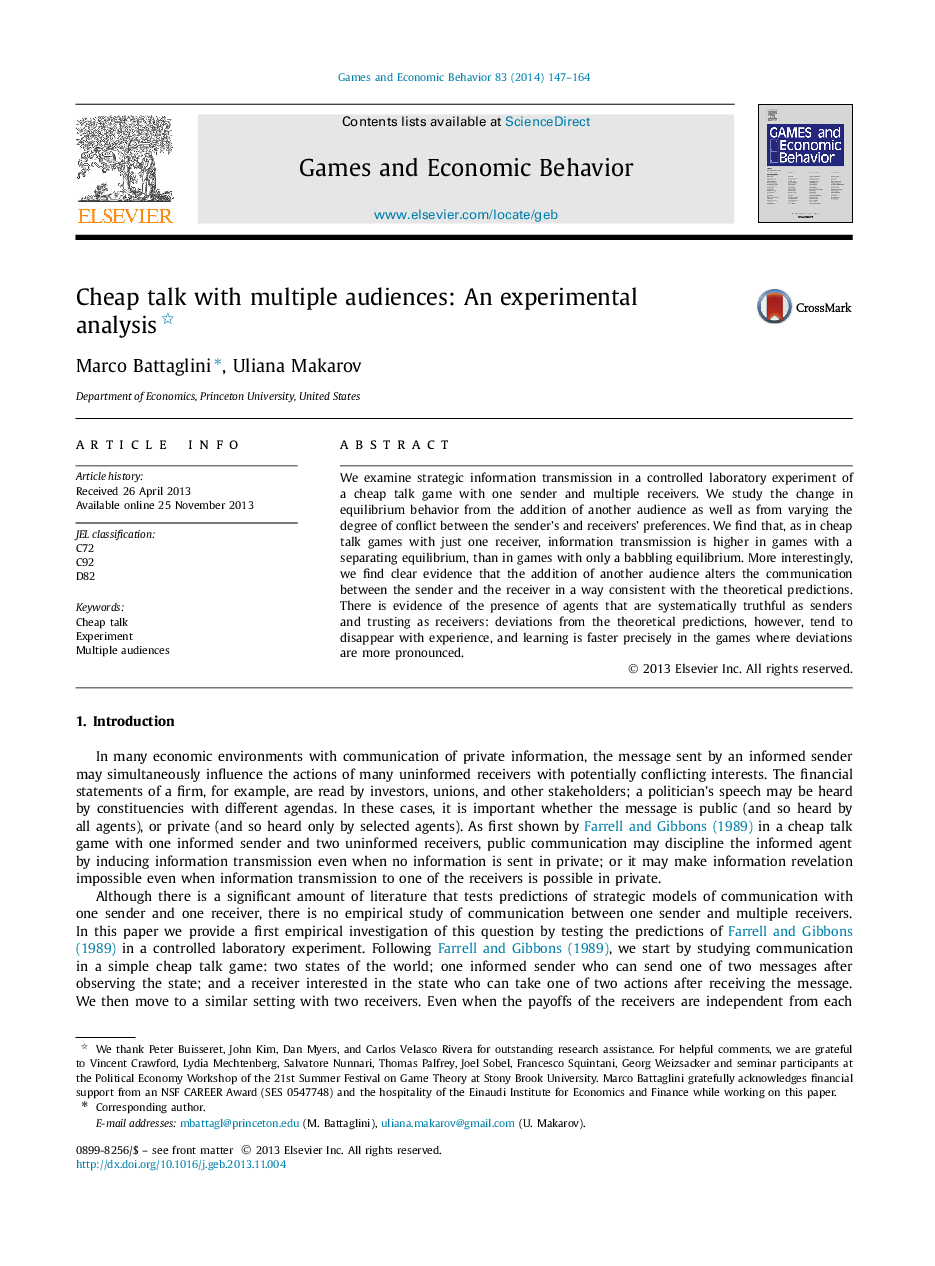| Article ID | Journal | Published Year | Pages | File Type |
|---|---|---|---|---|
| 5071898 | Games and Economic Behavior | 2014 | 18 Pages |
We examine strategic information transmission in a controlled laboratory experiment of a cheap talk game with one sender and multiple receivers. We study the change in equilibrium behavior from the addition of another audience as well as from varying the degree of conflict between the senderʼs and receiversʼ preferences. We find that, as in cheap talk games with just one receiver, information transmission is higher in games with a separating equilibrium, than in games with only a babbling equilibrium. More interestingly, we find clear evidence that the addition of another audience alters the communication between the sender and the receiver in a way consistent with the theoretical predictions. There is evidence of the presence of agents that are systematically truthful as senders and trusting as receivers: deviations from the theoretical predictions, however, tend to disappear with experience, and learning is faster precisely in the games where deviations are more pronounced.
